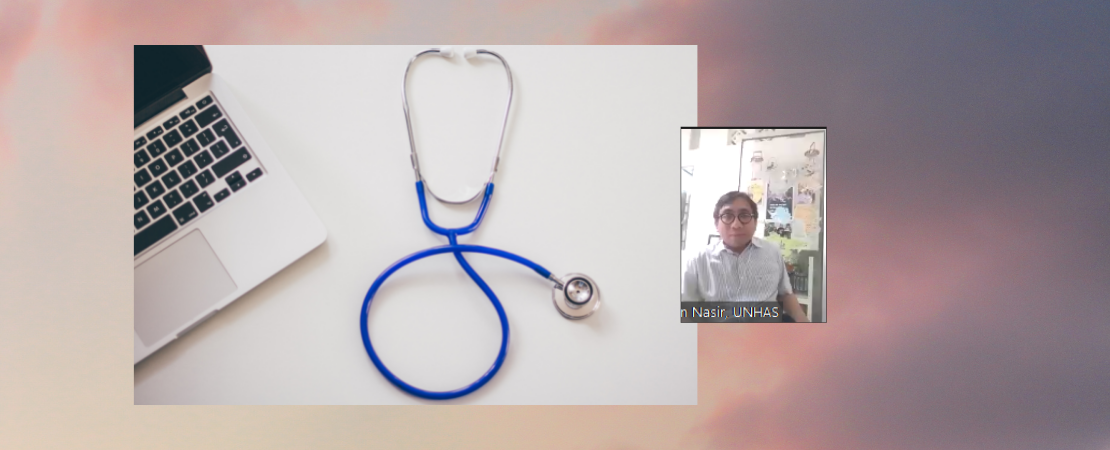The pandemic has created an opportunity for health science to change its approach to responding to health crises. Through an inter-disciplinary approach, health science will be more relevant to community needs.
This was the main message of a presentation by Sudirman Nasir, a health researcher from Hassanudin University (Universitas Hasanuddin), at the KSIxChange#36 event: ALMI Special Scientist Series, on Tuesday 21 September. The forum, ‘How Social and Humanities Science Can Protect Vulnerable Groups from the Impact of the COVID-19 Pandemic’ was held by the Knowledge Sector Initiative (KSI), in collaboration with the Indonesian Young Academy of Science (ALMI).
Speakers presented the situation of vulnerable groups in Indonesia. In addition to Sudirman, other speakers included an arts and culture researcher from the State University of Jakarta (Universitas Negeri Jakarta), Aprina Murwanti, an education researcher from the State University of Semarang (Universitas Negeri Semarang), Zulfa Sakhiyya, the Executive Director of Sajogyo Institute, Maksum Syam, a social, cultural and religious science researcher from the National Research and Innovation Agency (BRIN), Najib Burhani, and an economic researcher from the University of Indonesia, Teguh Dartanto. Inaya Rakhmani and Evi Eliyanah from ALMI moderated the discussion. This event was broadcast on The Conversation Indonesia’s YouTube channel and was equipped with English and Bahasa Indonesia interpreters, as well as sign language interpreters.
Sudirman said the one-dimensional approach to health science needs to be constantly questioned. “Quoting from Rudolf Virchow, the Father of Modern Pathology, diseases cannot be isolated from humans as mere biological creatures. The reality is bigger than that,” he said.
According to him, health issues are too complex to only be handled from a health perspective. The tradition of aligning medical science with other disciplines has been in place for a long time. With inter-disciplinary collaboration, health issues will be more manageable, as they will consider various factors, including the fact that disease risk and vulnerability are not equal. There are more vulnerable groups, and more resilient groups due to their privilege, thus needing different approaches.
Vulnerable groups
Sudirman said that, in society, there are always groups more vulnerable than the others, and vice versa, there are always groups more resilient than others. He mentioned the term cluster of disadvantage, which is used to show that vulnerability can accumulate.
One of the groups with accumulated vulnerability during the pandemic is people with chronic illnesses. Their access to treatment has been hindered, either because of limited health facilities or economic pressures. This was also experienced by poor people with disabilities, and people from minority faith backgrounds. Their position became more vulnerable during the pandemic. Vulnerability can be inherited, either in terms of health or social condition, and these special situations need to be considered in pandemic management policies.
A collaboration between social and health science is also very useful in efforts to eradicate the vulnerability of certain groups who face stigma, for example, the stigma suffered by people with HIV/AIDS, drug users, people with disabilities, and even people with COVID-19.
Another example of the importance of this collaboration is when public education efforts on health issues must face community groups that have been exposed to hoaxes or misleading opinions. “Biomedical science will not have a sharp knife when only relying on its linear perspective,” explained Sudirman.
By considering non-medical factors, health science will be able to find more relevance in a complex society. The perspective of social science can complement health science, which is sometimes too obsessed with visible factors. “Obsession with cause and effect will make health science lose the nuance that vulnerable people are humans and community members, thus needing further studies on their experiences,” Sudirman said.
According to Sudirman, isolating humans as an entity separated from their social and cultural aspects will only stagnate medical science. “For example, people with disabilities have their own ways to respond to challenging daily lives. The medical perspective tends to see them passively,” he said.
Therefore, researchers cannot view vulnerable groups as objects. They should actually engage vulnerable groups in research to include their perspective. Sudirman added that the stagnation of health science can also occur when specific cases involving humans and communities are considered as a mere collection of data. “Health cases do need to be accumulated and calculated as data. However, do not ignore something unique from social science, namely detailed descriptions,” he explained.






